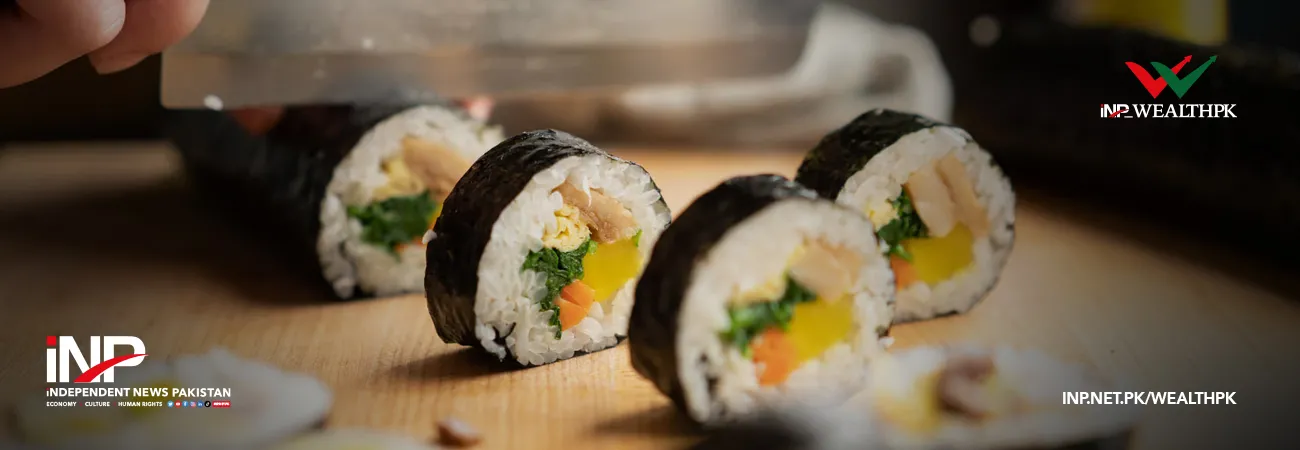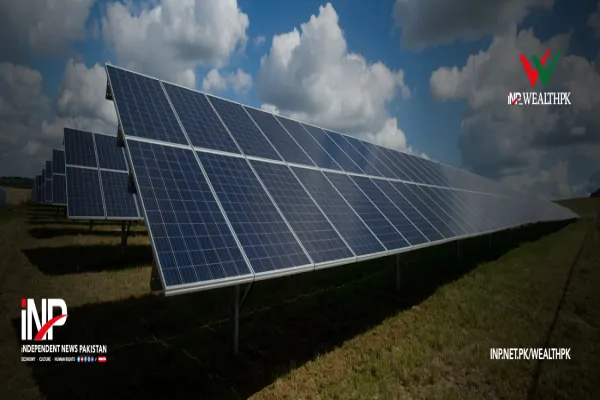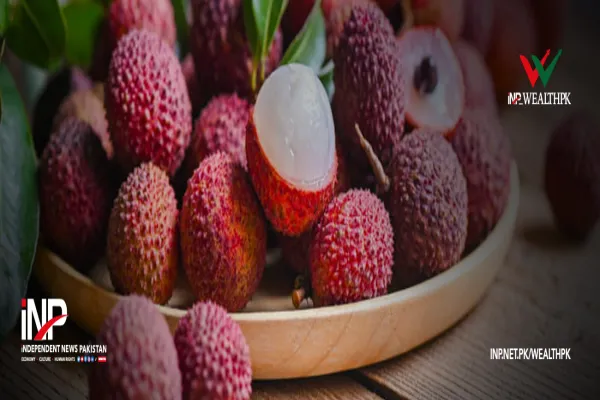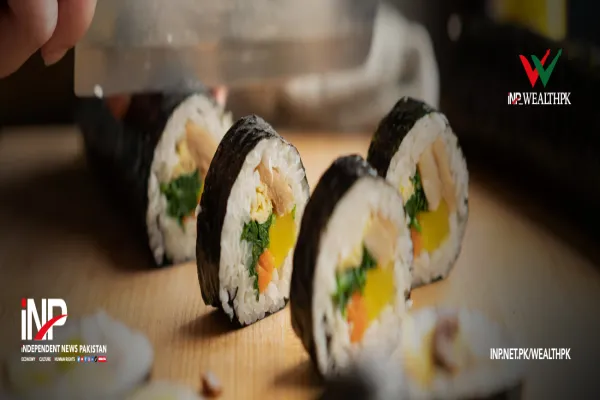i INP-WEALTHPK
Muhammad Luqman
A noticeable trend has emerged in urban Pakistan in recent years: the rise of Korean convenience stores and mini-marts stocked with kimchi, instant ramen bowls, dumpling, sausages, chili oil and cheese, and everything in between, reports WealthPK.
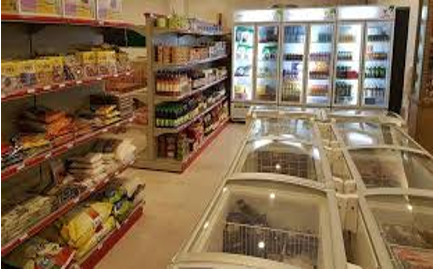
These vibrant outlets, often located in upscale neighborhoods, are drawing in a steady stream of curious customers and K-culture enthusiasts. Families in Lahore are seen flocking to KoRamen, the Korean convenience store located in the upscale locality of DHA in the evening to munch on noodles and other Korean delicacies.
“The Lahore outlet of KoRamen opened six months ago. It is drawing crowds, mainly from the upper and lower middle class,” said Amir Hamza, the store manager. He said the KoRamen chain group has convenience stores in Karachi and Islamabad too.
Talking to WealthPK, Amir Hamza said Korean dramas are fueling the popularity of Korean food and culture in Pakistan, especially among Generation Z and millennials. “One of the most visible impacts of this entertainment wave is cultural curiosity — particularly about food,” Amir Hamza said.
For many Pakistanis, Korean convenience stores offer the next best thing, he said. Unlike traditional supermarkets, Korean convenience stores in Pakistan are designed to replicate the full sensory experience shown in dramas. Neon signs in Hangul, minimalist shelving, and even K-pop playing in the background contribute to the authenticity.
“We allow customers to prepare their instant ramen in-store using hot water machines and dine-in tables — just like Koreans do in dramas,” Amir Hamza said. The products range from imported Korean snacks to beverages. Instant noodles like Samyang Hot Chicken Ramen are best-sellers, alongside novelty treats like banana milk, honey butter chips, and rice cake.
Social media platforms, particularly TikTok, Instagram, and YouTube, are amplifying this trend. Pakistani influencers and food bloggers routinely feature "Korean food hauls," "drama-inspired mukbangs," and reviews of new stores. For many young people, visiting a Korean convenience store isn't just about food — it's about participating in a pop culture experience they’ve seen in the web series.
“I am visiting the Korean convenience store first time. I came to know about Korean food while watching the Netflix Korean web series,” Shazaib Riaz told WealthPK, who came to Lahore’s Korean store with his wife and other family members. This cultural crossover is sometimes called the “drama diet,” where viewers become inspired to eat what they see in shows — often spicy, and colorful — even if they’ve never tried Korean cuisine before.
Entrepreneurs have been quick to notice this demand. In cities like Karachi, Lahore, and Islamabad, multiple Korean-style marts have sprung up over the last couple of years. Interestingly, some local stores are stocked with fusion items — halal-certified Korean snacks or locally manufactured versions of famous Korean dishes to meet price points and dietary needs.
While K-dramas may have ignited the spark, the popularity of Korean convenience stores in Pakistan is part of a larger shift: globalization of lifestyle and tastes. The growing Pakistani middle class is more connected, more experimental, and more open to cross-cultural experiences than ever before.
However, the longevity of this trend will depend on whether these businesses can evolve beyond novelty and maintain a steady, diverse customer base. As more people become familiar with Korean cuisine, the demand may shift toward authenticity and quality over hype.
Credit: INP-WealthPk


